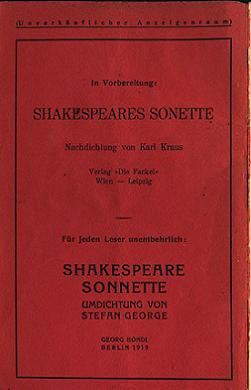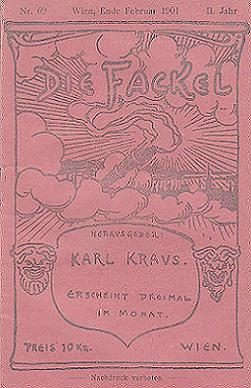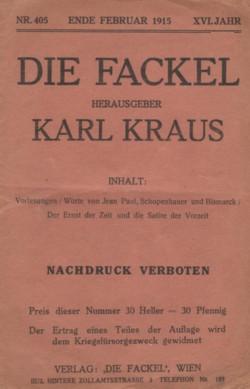Critic’s Notebook: Eric(h) Zeisl’s Requiem Ebraico – An Exile’s Synthesis
Also published in two parts in Die Presse: Concert review: Begeistert und begeisternd: Zeisls „Requiem Ebraico“ im Musikverein & Zeisl-primer with exhibition notice: Ausstellung zu Erich Zeisl: Ein vertriebener, verlorener Sohn der Musikstadt Wien
A.Zemlinsky, Psalm XIII R.Chailly / RSO Berlin Decca |
Eric(h) Zeisl et al., Requiem Ebraico ++ "Remembrance" J.Neschling / OSESP BIS |
Gustav Mahler, Symphony No.1 P.Boulez / Chicago SO DG |
Eric(h) Zeisl dropped the “h” fleeing the Nazis at Ellis Island — but at heart, he always remained a Viennese composer.
What would 20th-century classical music have sounded like if it hadn’t been interrupted by the all-consuming catastrophe of the Second World War? We’ll never know. But there are traces. Among the lost currents of “disappeared” music is a post-Stravinskian branch: spiky but tonal. You catch glimpses of it in the works of Wolfgang Fortner, Boris Blacher, Viktor Ullmann, Werner Egk, Karl Amadeus Hartmann or Harald Genzmer. Alongside that stood a more romantic strain – one more in the tradition of Richard Strauss. That’s where you’d place Erich Korngold, Franz Schmidt, Joseph Marx – and Surprised-by-Beauty-composer Eric(h) Zeisl.
Some of these composers escaped physical destruction. But their works didn’t survive the postwar shift in listening aesthetics. State and institutional support overwhelmingly favored one very specific kind of modernism, cementing the divide between “safe” repertoire and contemporary music. Tonal composers were looked down upon – vaguely associated with Nazi-aesthetic tastes, even those the Nazis had labeled “degenerate” and persecuted. These composers were caught between two worlds. Zeisl especially.
Erich Zeisl was born in Vienna in 1905 to the owners of Café Tegetthoff, with Jewish-Hungarian roots. He began composing at 14, entered the Conservatory at 16, and won the Lili Boulanger Prize at 20. His early songs were picked up by the great bass Alexander Kipnis, among others. His opera Hiob – based on the novel by Joseph Roth – was submitted to the Austrian Music Council. The verdict was unanimous: not modern enough.
When the Nazis marched into Austria in 1938, Zeisl fled to Paris, then to the United States. In Hollywood, his career didn’t take off or crash – it just moved sideways. He worked as an arranger and composer for MGM and Warner Bros., writing uncredited music for films like Lassie Come Home, Money, Women, and Guns, and others. No breakthrough, no fame – California led Zeisl not to career heights, but to a musicological footnote.
ExilArte, the Center for Persecuted Music in Vienna, just between the Konzerthaus and the Akademietheater – is trying to nudge him back toward the repertoire. Help came from attorney Randol Schoenberg, grandson of Arnold Schoenberg – and of Zeisl. Schoenberg brought Zeisl’s papers and music back to Vienna, where they are now housed at ExilArte. The aim: to let young, unencumbered students at the MDW discover the extraordinarily fine music of Eric(h) Zeisl – who may have dropped the “h” in America, but who remained, in his musical heart, always a Viennese.
One chance to discover Zeisl’s music came on the following Sunday, when the RSO Vienna performed one of his best-known works, the Requiem Ebraico, at the Musikverein.
One of the RSO Vienna’s core responsibilities is to enrich Vienna’s concert scene with interesting programs – programs the other orchestras often lack the courage or will to offer. This includes music that, once introduced, audiences actively want to hear and possibly hear again.
Sunday evening’s concert was a textbook example. Granted, Gustav Mahler’s First isn’t exactly a revelation – but hey, even the Golden Hall doesn’t fill itself. Mahler draws a crowd, Alsop loves to conduct him, and programmatically it all dovetailed with Alexander Zemlinsky and Eric(h) Zeisl. And you can’t really go wrong: Just play loud enough and fast enough and the audience will be awed into laudatory submission by the sheer force of sound. The shrill strings? Forgotten. . The out-of-sync basses? Forgiven... The absence of any dynamic below mezzoforte? Well, that was a pity. But even within this gleeful sonic bludgeoning, there were fine moments: the rustic launch of the second movement, the tipsy staggering towards the fourth movement. The audience pre-emptively gave Marin Alsop a standing ovation – a warm-up for her farewell appearance this Thursday, when she’ll conduct her final program as RSO Chief Conductor (Mahler 2).
Zemlinsky’s grand, even glorious setting of Psalm 13 for chorus, organ and large orchestra opened the evening with weight and passion. Doubt and resistance rendered into stirring – but never shallow – music. But the secret centerpiece was Zeisl’s Requiem Ebraico. Zeisl wrote more immediately appealing and coherent works, but none that so deftly fused the different strata that exile imposes – Vienna and California, modernism and romanticism, secularism and Judaism – into one frame, without stooping to the lowest common denominator. The sharply articulated solos and the Singverein – unintelligible, but enthusiastic – gave the piece the intensity it needs.
Stripped of his cultural German identity and his Austrian homeland, Zeisl’s Requiem is an attempt to situate his European, Jewish, and American self in music. The synthesis was, in 1944, ahead of its time: too European for Americans, too American for Europeans, too Jewish for Christians, too Christian for Jews, too modern for conservatives, too conservative for modernists – and yet always beloved by audiences. The Musikverein was no exception. A moving, compelling, and captivating glimpse into a world that never got to exist.
From May 14, the ExilArte Center presents the exhibition Erich Zeisl – Vienna’s Lost Son in Exile.

Follow @ClassicalCritic




































































